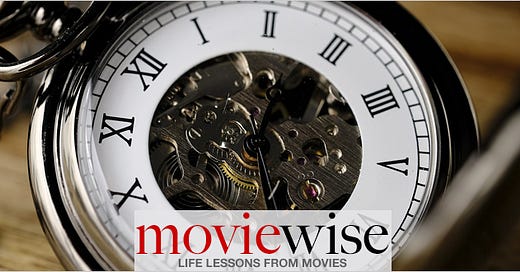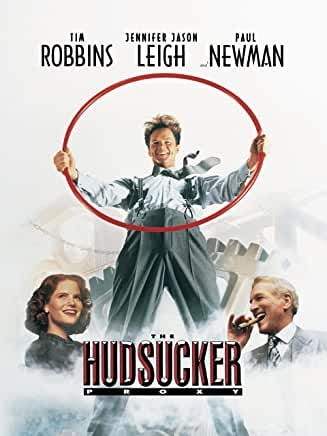Image by L.E. Wilson from RedBubble based on work by Bruno from Pixabay
The best cure there is for such a disease as the one afflicting you is a correct understanding of the governance of the world, which is not merely a string of random events, but the result of divine reason.
Because so many movies are clumsily, artlessly, lazily made, and are pointless, shallow trifles, one is struck deeply when a movie is layered, thoughtful, meaningful and you find yourself feeling enlightened, awakened to a truth, taken to a well of knowledge you had not been exposed to before.
Writer-directors Joel and Ethan Coen and co-writer Sam Raimi have made many of the latter movies. At some point as you watch one of their insightful films, it strikes you that they, the makers, are intelligent, knowledgable, educated, careful craftsmen, magicians, who deliberately set out to construct lessons in philosophy, as they did in their 1994 movie, The Hudsucker Proxy. And here you thought movies were just purely for entertainment. Perhaps some are, but sometimes the ones making movies are not just entertainers who simply want to help you pass the time with a confection.
Sometimes movies are made by sages, by wizards, by philosophers embodying and modeling the lessons learned from ancient knowledge.
The Hudsucker Proxy (1994) is a comedy co-written and co-directed by Joel and Ethan Coen about Norville Barnes (Tim Robbins), a recent business school graduate from a small town who is unwittingly made president of a successful company as part of a scam by its board of directors.
Life Lesson: You always have a second chance.
🍿Movie Scene Link (movie quote)
For example, the Wheel of Fortune (Rota Fortunae) is a concept from antiquity that explains the fickle, inconstant, nature of fortune and misfortune, most commonly attributed to the Roman philosopher Boethius, who is mentioned by name and quoted at length in the 2002 movie 24 Hour Party People. But The Hudsucker Proxy takes Boethius’ Consolation of Philosophy as a foundational guide.
The Wheel of Fortune—which represents highs and lows, ups and downs, triumphs and defeats—is visually represented throughout the movie. The striking visuals includes a recurring circle motif seen, for example, as a coffee ring around a job advertisement in a newspaper, the schematic designs of spherical toys (you know, for kids), and a giant clock that begins and ends the movie. In fact, the clock is used to show the changing fortunes of the two presidents of Hudsucker Industries, with the clock hands pointing to the rise or ascension at 9 o’clock, the highest peak 12 o’clock, the descension at 3 o’clock, and finally the fall 6 o’clock, the very bottom.
The idea of a circle to explain the core inner workings of the universe is also alluded to in other ways. Take, for example, when the movie is set, which is New Year’s Eve, and thus represents a revolution, an orbit, around the sun. There is also a verbal explanation of karma as being, “what goes around comes around,” and an allusion to reincarnation, which itself could be represented as a kind of circle:
Well, the Hindus say, and the beatniks also, that in our next life some of us will come back as ants, some will be butterflies, some will be elephants or creatures of the sea.
Norville Barnes (Tim Robbins), the protagonist in The Hudsucker Proxy, is the Everyman. He is neither brilliant, nor an imbecile. He has great ideas and terrible ones. He has no superpowers, but he is capable. He is pushed around by fortune, but also takes a stand and sometimes exerts control over his life. Is this not us? Are we not also Boethius, sitting in a prison cell lamenting our misfortune, forgetting all the times we were on top, and all the benefits we still have with us even in our lowly current state?
Norville’s love interest, Amy Archer (Jennifer Jason Leigh), is a representation of Boethius’ “Lady Philosophy,” who in The Consolation shoos away the muses, the inspirations for music and art, because they make Boethius self-indulgent and distract him from using his reason to understand his situation and to find real comfort in looking at the truth rather than veils of pleasure that obscure the true nature of the universe. “What we want is the fruits of reason, while all they [the muses] have is the useless thorns of intemperate passion. If he listens to their nonsense, he will accustom himself to depression instead of trying to find a cure.”1
The message is simple, don’t live in a world of illusions because you lose touch with reality and gain no knowledge. Living in this distracted state is itself a kind of prison, where you are not free to see reality clearly and therefore are in a helpless, subservient position. Indeed, one of the messages in the film, represented by Hudsucker Industries’ motto, “The future is now” is to be aware of and live in the current moment because nothing is promised to us, which will allow us to be at peace and make today the day we are waiting for, since happiness is only found in the present.
In the movie, Amy likewise chases away some “muses” from Norville’s office: a string quartet, an artist working on a sculpture, and two women who are giving him a massage and a manicure. She tells him that he’s lost his way, lost his inspiration, lost himself, “You forgot what made your ideas exciting to you in the first place. It wasn’t the fame, and wealth, and mindless adoration,” which is similar to the counsel Lady Philosophy gives Boethius, “You have been banished from yourself, and one could even say that you are therefore the instrument of your own torments, for no one else could have done this to you.”2
Speaking of the passions, the music in The Hudsucker Proxy, from the ballet Spartacus by Soviet composer Aram Khachaturian, is truly divine, and by itself constitutes a reason to watch this film. After all, while distracting yourself too much from reality is not healthy, the occasional indulgence in beauty and art is rewarding as well as life-giving.
But the real comfort that Norville finds, that we get from this movie, comes from reason. It comes from knowing we have a second chance. There is always a second chance, even if you are sitting in a jail cell like Boethius. You must fight on, because you must understand that the wheel of fortune keeps turning and you will not be at the bottom forever. Fight to make today good, even if you are despairing. Fight to see hope, even if you are sad. Fight to be at peace with your life, even if you desire something better. Every day that you fight brings you higher up the wheel, but when you reach the top, do remember how to get back there, because the wheel will keep on turning.
Visit the moviewise catalogue—a searchable database of one sentence movie summaries, movie quotes, and movie wisdom—for movie recommendations.
Also visit the moviewise store. Get a t-shirt, bag, or pillow with your favorite #LifeLesson from a movie. Reply to this or leave a comment below to make a request.
Movie Lists! | Guides To Life | Movie Therapy | Ready To Laugh | + Guest Posts | Comic
Slavitt, David R., translator. The Consolation of Philosophy. By Anicius Manlius Severinus Boethius, Harvard University Press, 2008, p. 4.
Slavitt, David R., translator. The Consolation of Philosophy. By Anicius Manlius Severinus Boethius, Harvard University Press, 2008, p. 20.










One of my favorites and continually underrated. It's also really funny. The snappy 1940s dialogue is right out of Preston Sturges. "It might work. It could work. It's working already" is brilliant, especially the last line delivered by a cigar chomping Paul Newman at his best. I like the tie-in with Boethius and the sage janitor who takes care of the clothes clock (though it is the magical negro trope, it makes sense here.) The Coens are big Sturges fans and have referenced many of his movies throughout their catalog, most notably o brother where art thou which was the movie Joel McRae wanted to make in Sullivan's Travels. I gleefully anticipated hail Caesar but it wasn't as entertaining or thought provoking as I'd hoped. I always go back to Hudsucker and A Serious Man.
One of the most under-rated movies, I love it when I watch it every year. The simplicity wins out.
I have an invention, sorry, an innovation that will help many people who own Macs, I would think half of the owners would buy it, and if I presented it, it could be a straight line on a page, and I could say to the board of directors, "you know, for Mac users".
I wish I could present to Apple and get a small percentage of sales, which will be millions, but I know I couldn't trust them or any other huge corporation. I have to go it alone, which means the sharks who have never had an original thought in their lives will poach my idea and leave me high and dry. I need to crowdsource it and get orders in advance. It's almost as simple as the hula-hoop.
I recommend The Hudsucker Proxy to everyone. It's up there with Groundhog Day.